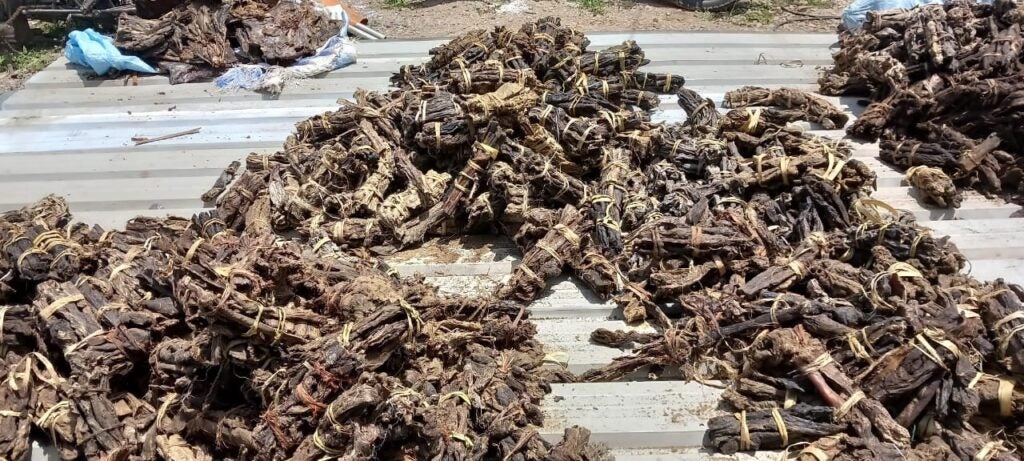Bushmeat poaching is wiping out Angola’s wildlife
Meat from unknown wildlife is openly sold at markets in big cities, resulting from indiscriminate hunting in Cuando Cubango province

Your support helps us to tell the story
From reproductive rights to climate change to Big Tech, The Independent is on the ground when the story is developing. Whether it's investigating the financials of Elon Musk's pro-Trump PAC or producing our latest documentary, 'The A Word', which shines a light on the American women fighting for reproductive rights, we know how important it is to parse out the facts from the messaging.
At such a critical moment in US history, we need reporters on the ground. Your donation allows us to keep sending journalists to speak to both sides of the story.
The Independent is trusted by Americans across the entire political spectrum. And unlike many other quality news outlets, we choose not to lock Americans out of our reporting and analysis with paywalls. We believe quality journalism should be available to everyone, paid for by those who can afford it.
Your support makes all the difference.By Gaspar Jindanji for Epito Reporter
Angola’s Criminal Investigation Services (SIC) and Public Prosecutors Officers (PGR), in the southeastern Cuando Cubango Province, seized more than one hundred small bundles of meat from different animals.
The animals are believed to have been slaughtered indiscriminately, in the woods of the municipalities of Cuito Cuanavale and Mavinga, by poachers who set up camps in those locations, for months. The meat is dried and packaged in bags of 50 and 100 kilograms and transported to the city of Menongue and other destinations.
Indicators from the Provincial Directorate for the Environment point to an increase in bushmeat poaching in recent times, a problem that is exacerbated by the fact that there is no environmental education, and high levels of poverty.
According to environmental specialists, the hunters who operate in the most diverse forests of the province have no notion of selectivity or sustainability in their practices, nor any notion of protected or endangered species, killing everything that comes their way including pregnant individuals and offspring, eager for easy profit.
The action of hunters is so intense that it is now possible to travel more than 700 kilometres in the interior of the province without seeing a single animal. Despite the fact that the province has two national parks and an area that is part of the Okavango Zambezi Transfrontier Conservation Area, diverse species are increasingly disappearing.
At the Menongue markets, and in some famous places, such as Missombo and Maseka, it is common to see pans of meat from slaughtered animals almost every day, in a delicacy that is gaining more and more fans.
At the moment, SIC and PGM are working on identifying the type of animals that were slaughtered to typify the accusation. However, criminal specialists are of the opinion that the penalties in the law do nothing to reduce these practices on the side of those who slaughter and those who buy the animals with the purpose of marketing the meat and its derivatives.
In the premises of the Provincial Directorate for the Environment it is possible to see several specimens of elephant ivory and products from other large mammals that were also killed by poachers.
This article is reproduced here as part of the African Conservation Journalism Programme, funded in Angola, Botswana, Mozambique, and Zimbabwe by USAID’s VukaNow: Activity. Implemented by the international conservation organization Space for Giants, it aims to expand the reach of conservation and environmental journalism in Africa, and bring more African voices into the international conservation debate. Written articles from the Mozambican and Angolan cohorts are translated from Portuguese. Broadcast stories remain in the original language.
Read the original story here:
Join our commenting forum
Join thought-provoking conversations, follow other Independent readers and see their replies
Comments